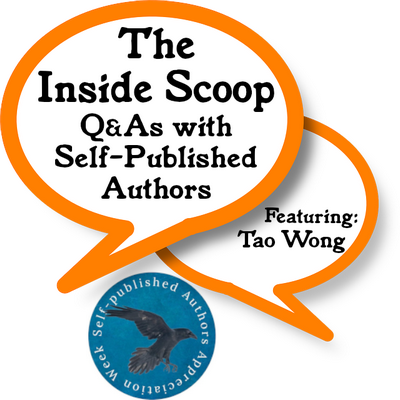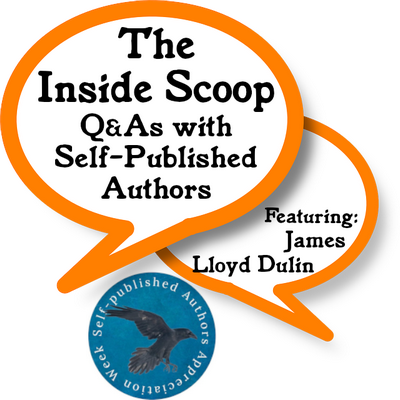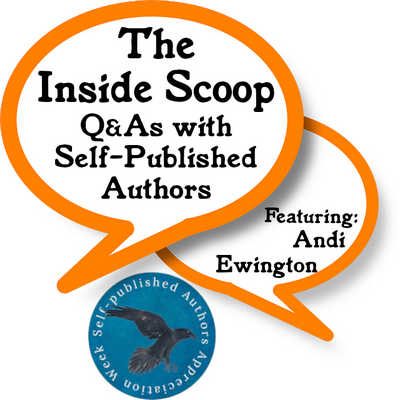
I’m very glad to be able to include Andi Ewington as part of this series–he has experience being published by others in addition to being self-published, and that perspective is important. Also, over the last couple of months I’ve found him to be a supportive, fun, and generous guy, and why wouldn’t I want to expose more people to someone like him? I think Ewington was the first to send his responses in, just based on some of my follow-up questions. I’m wondering if I shouldn’t have taken another shot at some of these after reading what others said, but that problem is with me–not with anything Ewington contributed.
Before we get into things, why don’t you give the reader a brief introduction to you and your work.
I’m Andi Ewington, Writer & Game Director. I’ve written Campaigns & Companions, The Hero Interviews, and many comics for IPs such as Just Cause, Dark Souls, Fighting Fantasy, and Vikings (TV Series). I’m usually found on Twitter as @AndiEwington, while most of my books are available from Amazon.
What are some of the biggest misconceptions you find that readers have about self-published books?
I think the biggest misconception is around the quality of any self-published work because it hasn’t been released via a traditional publishing route. I would say there’s a lower entry bar for sure (you don’t usually have an editor demanding rewrites or making company decisions on your work)—but it doesn’t mean that every self-published book isn’t up to scratch—if anything, being the gatekeeper to my work has pushed me to over-deliver on quality.
Something tells me that this is going to be the misconception that everyone mentions here, and I’m all for having a bunch of people react to it.
Exactly!
What kind of costs are associated with self-publishing a book? Do you hire one or more editors, or one editor for a couple of passes? Cover artist? Anyone to help with layout, design, etc.? Beta readers? Or do you take it all on yourself? Are you actually making any money at this, or are you still focused on breaking-even while building an audience?
This is a real ‘how long is a piece of string question’. In short, you have to ask yourself, as a self-published writer, ‘What can I do myself versus what do I need to pay for—and if I can’t pay for it, how can I thank those that do help?’ So, for The Hero interviews, even though I have over 30 years of graphic design experience, I wanted to pay for an illustrated cover drawn in a particular style—that came with a sizeable financial outlay. For editing, I pulled a favour from a close friend in exchange for a credit on the cover. Several volunteers offered to beta read for me—all were credited and thanked in the acknowledgements. I designed the cover, set the interior pages, created the ebook file, submitted it through Kindle Direct Printing, typeset the interior pages for paperback, and submitted it all over again. Beyond the illustrative cover—the biggest expense is time. As for making money, it’s almost impossible with just one book (unless you’re fortunate) to make enough to sustain a lifestyle beyond living in cardboard boxes. I’m lucky to have a good enough job that allows me the luxury to write without any financial expectations. That said, I’ve probably just about made a small profit after covering the costs of my initial outlay.
A profit is a profit! Congrats! [having read all the Q&As now, want to underline that–any kind of profit is fantastic]
Are you using any kind of crowd-funding to help with that? What have those experiences been like?
I’ve never used crowd-funding; I have a bit of a conflict of interest that I don’t want to go too much into—but it’s an avenue that isn’t viable for me. I’ve seen plenty who have both succeeded and failed. Getting the postage right seems to be the biggest pitfall; if you are over budget for it—you may end up paying out far more than you initially planned.
Sure postage. The one thing I’d really never think of if I were setting something like this up. You think the big stuff to worry about would be cover design, editing–just writing the things–while keeping your day job. But it all comes down to spending the right kind of time at stamps.com or whereever.
Do you do your own cover design, or have you found people to help with that? It seems almost as difficult as writing the novel itself–talk about the process a bit.
I have an unfair advantage with 30 years of design experience. I can design my own cover and get it print ready to the correct dimensions with relative ease (coincidentally, I will do exactly that for my following (12) books to save on costs). For ‘The Hero Interviews’, I was more than happy to employ the services of a professional illustrator (Conor Nolan—who did a fantastic job!).
Are there tools, mentors, websites you’ve found to help you through this process? Or did you stumble through blindly on your own?
Self-publishing embraces the ‘learn on the job’ mantra—that said, Reedsy.com is a fantastic place to start if you’re looking to get an ebook file produced. The rest of the time, I was bumbling along, trying my best not to make any mistakes (spoiler alert, if it’s your first-time self-publishing, you will make mistakes—don’t worry too much about it).
How do you juggle marketing/PR/etc. with writing new work? (along with day jobs, family, hobbies, etc., etc.)
Self-publishing is always a constant juggle. Carving out the same time each day is a great way to complete your novel (which is the hardest part of the journey). With self-publishing, as most of the work falls upon your shoulders, you’ll have to spend more time with your head buried in your computer, scouring community forums trying to figure out why your footnote pop-ups aren’t displaying correctly on your ebook than not. As obvious as it sounds, try to focus on doing just one thing and do it well rather than spreading yourself too thin and delivering something that’s under par.
How do you promote your book–what things have worked best for you? What kind of lessons have you learned for things not to do (at least for you)? Do you do any in-person marketing, or are you all on-line (I assume predominately online)
Primarily, for self-publishing, online will be your go-to. Social platforms like Facebook, LinkedIn, and Twitter will give you a better chance of expanding your reach. Of course, all this depends greatly on your followers count—so maximizing engagement opportunities is key. Understanding how a market reacts is also essential. As a self-published author, it’s tempting to shout about anything new immediately—but you’ll have a better chance of making a sale if you shorten the distance between engagement and when a book is available. I’ve been guilty of wasting a golden opportunity simply by announcing something before the book is ready to be purchased. You’ll only have a small window of opportunity with most of your audience; learning how to leverage this for maximum impact is invaluable.
What’s the breakdown of your audience—do you have a strong local base, or are your readers from other parts of the world?
Your largest potential audience will always be around the genre you’ve chosen to write in—after that, it probably be based on your location. I know I’m strong in my home country (UK), but I’ve also a sizeable following elsewhere across the globe—especially in America. As my work draws inspiration from British TV comedy—I tend to attract fans with a similar sense of humour.
You’ve been around the block enough to at least have an educated guess here–do you think this is how it’s going to be for self-published authors going forward? People finding you more based on their tastes than localities? It’s just as easy for me to grab a UK author as much as a US one anymore (largely). It seems to me that self-published authors would have to have a strong local base to keep them going, but now it’s more of a taste/social-media base? Does that sound about right? Or would you describe it differently?
The world is much smaller these days—I don’t think it matters where your audience is based. Sure, cultural tastes change from region to region, but if you’ve pitched your tent in a particular field (say Fantasy/Comedy  ), then I think you’re going to find fans naturally gravitate towards your work regardless of where they are. Social media has made it easier for a Self-Publisher to reach other territories in a single post—I know from my own sales I have a large following in the US, almost rivaling the one I have in the UK. You’ve got to put in the groundwork and engage with those communities you think will pick up your book; if you don’t—it will be much harder to be noticed in a crowded market.
), then I think you’re going to find fans naturally gravitate towards your work regardless of where they are. Social media has made it easier for a Self-Publisher to reach other territories in a single post—I know from my own sales I have a large following in the US, almost rivaling the one I have in the UK. You’ve got to put in the groundwork and engage with those communities you think will pick up your book; if you don’t—it will be much harder to be noticed in a crowded market.
What made you decide that self-publishing was the direction you wanted to go? How often do you question that choice? How do you get through the self-doubt?
There’s a belief that you’re somehow less of an author if you self-publish—but I’ve never thought that. Sure, I always liked the kudos of being picked up by a large publisher. However, after my initial experiences with self-publishing, I don’t think I’ll ever go back to jumping through hoops to bag a traditional publishing contract again. As for self-doubt—I have to remind myself that I’m no worse off than I would be if I had been traditionally published—plus, I much prefer not having to answer to an editor who wants to cut your book in half to save costs and get your overall page count down.
That’s a great way to deal with self-doubt.
Have you thought about trying to get a deal with major (or indie) publishers for upcoming works, or are you planning on sticking with self-publishing?
I chose self-publishing because I had exhausted all other traditional options. I had been rejected repeatedly and decided enough was enough, and I would go it alone.
Odds are, you’re doing this from love/passion, not to pay the bills. What keeps you going? I’m assuming there are more “who”s than “what”s, actually–who is it?
My kids—I want them to follow their dreams. Writing is my dream—and I hope it gives them the courage to follow their dreams too.
Self-publishing tends to have less external deadlines keeping one accountable. How do you maintain your work process or work ethic?
Time schedules and dedication. You must have discipline—sometimes saying ‘no’ to distractions and getting on with your book. It’s a long, hard road—but the feeling of publishing something from start to finish without needing an external publisher is hugely satisfying.
If you were to start the process over with the experience you have now, what would you do differently?
Write a shorter book. 195,000 words is the equivalent of ‘The Fellowship of the Rings’. Next time, I will write something that doesn’t take me 6 weeks to proof!
What is your favorite and least favorite thing about being self published?
Having to shout from the rooftops about your book—I don’t enjoy feeling like a hawker trying to sell their wares. It’s a necessary evil—if you don’t shout about your book, someone else will shout about theirs instead.
What was your process for learning how to take care of all the facets that go into self-publishing? (editing, book cover and design, ISBN, finding places to sell/distribute, etc.)?
As mentioned, there’s a lot of learning as you go along. Fortunately, Amazon’s Kindle Direct Printing handles many design, ISBN, and distribution questions. That doesn’t mean they’ll have the answers to everything—but it’s a good start.
This is the second time you’ve mentioned Amazon’s KDP. Are they essential for the contemporary self-published author, or were they just the option you picked and/or the most expedient?
The latter for me; I wanted a quick solution to market. I didn’t want the hassle of having lots of spinning plates to manage—KDP offered a large potential customer base and a way to monitor and maintain sales.
How do you decide a book is finally finished and ready? (or how do you avoid “perfection as the enemy of good”?)
I don’t think a book is ever really ready—you have to decide what mistakes you’re happy for a reader to find. Self-publish has one huge advantage, however—at any point I spot an error after being published (on Amazon) either digitally or physically, I can amend the mistake and submit it again to KDP and have the new version up online within 72 hours—now that’s something traditional publishers are less inclined to do for you at the drop of a hat!
Thanks for your time and participation! Hope you enjoyed it! And do know that there are many of us out here who appreciate and applaud what you do (and our number is growing)!
Be sure to check out The Hero Interviews and the rest of his work so he doesn’t have to be the only one shouting about his books!
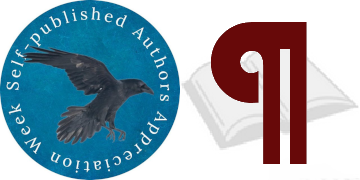
Clker-Free-Vector-Images from Pixabay
The 2023 Self-Published Authors Appreciation Week Logo was made by Witty and Sarcastic Book Club
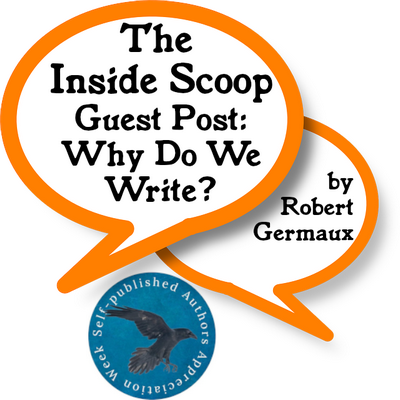 Robert Germaux has always been game for anything I’ve asked him if he wanted to do–which is great, because I’ve always appreciated whatever he produces. Better than the things he’s done with me are the books that he’s provided for me and/or I’ve purchased. Like this post, for example, which is a revised version of something that appeared in one of his books and on this site a few years ago. He’ll be back for the Self-Publishing Q&A here in a few.
Robert Germaux has always been game for anything I’ve asked him if he wanted to do–which is great, because I’ve always appreciated whatever he produces. Better than the things he’s done with me are the books that he’s provided for me and/or I’ve purchased. Like this post, for example, which is a revised version of something that appeared in one of his books and on this site a few years ago. He’ll be back for the Self-Publishing Q&A here in a few.


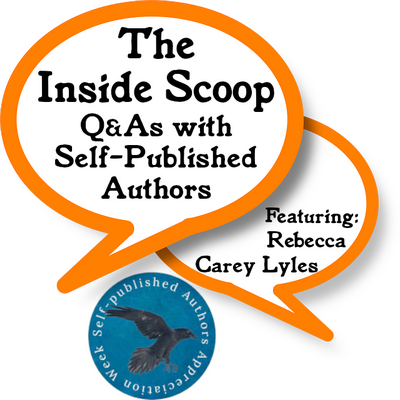


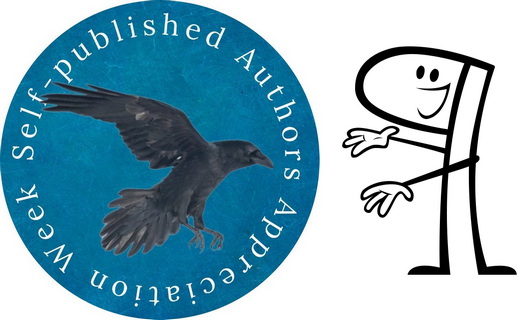

 The World Savers
The World Savers 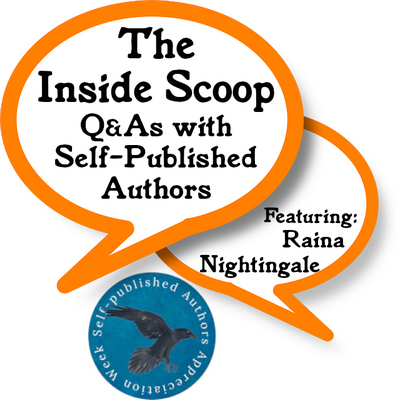
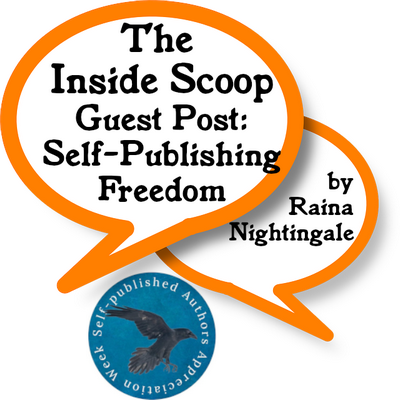 One of the first things that Raina Nightingale said to me was that she wanted to do a Guest Post about the freedom of self-publishing. This sounded perfect to me, that freedom is one of those things that defines self-publishing to me. I’ll be posting the Self-Publishing Q&A with Nightengale a little later this morning, be sure to come back for that.
One of the first things that Raina Nightingale said to me was that she wanted to do a Guest Post about the freedom of self-publishing. This sounded perfect to me, that freedom is one of those things that defines self-publishing to me. I’ll be posting the Self-Publishing Q&A with Nightengale a little later this morning, be sure to come back for that.